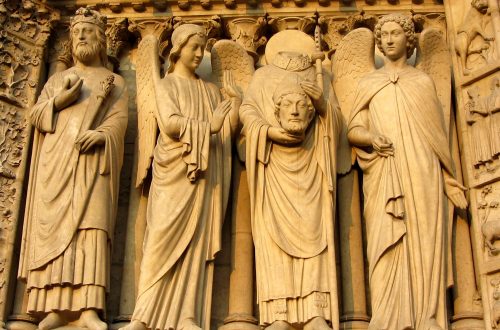Last year, James Merritt moved that the President of the SBC appoint a task force to study Article 3 of the SBC Constitution and how the Baptist Faith & Message (BF&M) figures into our cooperative efforts. President Barber appointed the task force last year, and they became known as the “Cooperation Group.” They have been working since last year and released their recommendations earlier today.
I am grateful for the hard work of the committee and for their service to the convention. I’m also grateful that they were able to come up with a set of proposals that they unanimously approved. That is really impressive given current divisions within the SBC. Some of the original proponents of Merritt’s motion were hoping that this group would counteract the Law amendment. The committee did not do that, and that is to be commended.
Before the recommendations were released, I had come up with two criteria that had to be met in order for me to consider supporting the recommendations.
1. The recommendations must in no way undermine the Law amendment.
2. The recommendations must in no way undermine our current constitution arrangement, which calls for cooperating churches not be in contradiction to the BF&M. “Closely identifies” has historic meaning and needs to be maintained.
The committee has offered four recommendations, and I believe that all of them meet these two criteria. I will offer one caveat to this judgment. If any of the committee members or their proxies were to promote these recommendations in a way contrary to these two criteria, I would likely oppose them. Why? Because how the committee members speak about these recommendations now will effect how they are interpreted in the future. So the promotion of the recommendations needs to be consistent with how they read. Here are the recommendations:
Recommendation 1: To ensure that edits or amendments to The Baptist Faith & Message follow the same process as amendments to the Constitution (two-thirds vote, two consecutive years), we recommend the Executive Committee propose changes to our governing documents for the Convention’s consideration at the 2025 Annual Meeting.
Recommendation 2: To ensure that the sole authority for seating messengers is vested in the messenger body, we recommend the Executive Committee propose changes to our governing documents for the Convention’s consideration at the 2025 Annual Meeting. We also recommend celebrating churches seating messengers for the first time.
Recommendation 3: To ensure the fidelity of our trustees to our doctrinal confession, we recommend the Executive Committee propose changes to our governing documents for the Convention’s consideration at the 2025 Annual Meeting to require the Committee on Nominations to nominate as entity trustees and standing committee members only those candidates who affirm the Convention’s adopted statement of faith.
Recommendation 4: To clarify our cooperative unity, we recommend the Executive Committee evaluate the usefulness and accuracy of a public list of churches and report their updates at the 2025 Annual Meeting.
I have already written in favor of Recommendation 1, so that one is a no-brainer for me. If the BF&M is going to be a basis for cooperation, we must make it more difficult to change.
Recommendation 2 has the effect of cutting the Executive Committee out of the process for credentials challenges. I believe this is a good move as well. We don’t need the Executive Committee functioning as a “middle man” between the Credentials Committee and messengers. The Committee should make their recommendations directly to messengers, and messengers should be able to vote on their recommendations. I would also argue that the process needs to be written in a way that allows for messengers to vote referrals out of the committee from the floor (as in our resolutions process).
Recommendation 3 is a home run. We absolutely need all trustees and committee members to affirm the BF&M. Ironically, some of the members of the Coop Group would be ineligible for service based on the criterion established in this particular recommendation.
I am not sure yet what to think about Recommendation 4. I can see this being a pretty sticky wicket. How would we determine which churches are “Southern Baptist” churches? You’ll see what I mean by that as the conversation goes forward. This isn’t as straightforward as you might think. But in principle, I have no problem with the Executive Committee studying this question.
These are my initial impressions, and I reserve the right to reconsider and change my mind as the debate unfolds. But in general, I’m pleased with these recommendations, and I thank the committee for their work.






